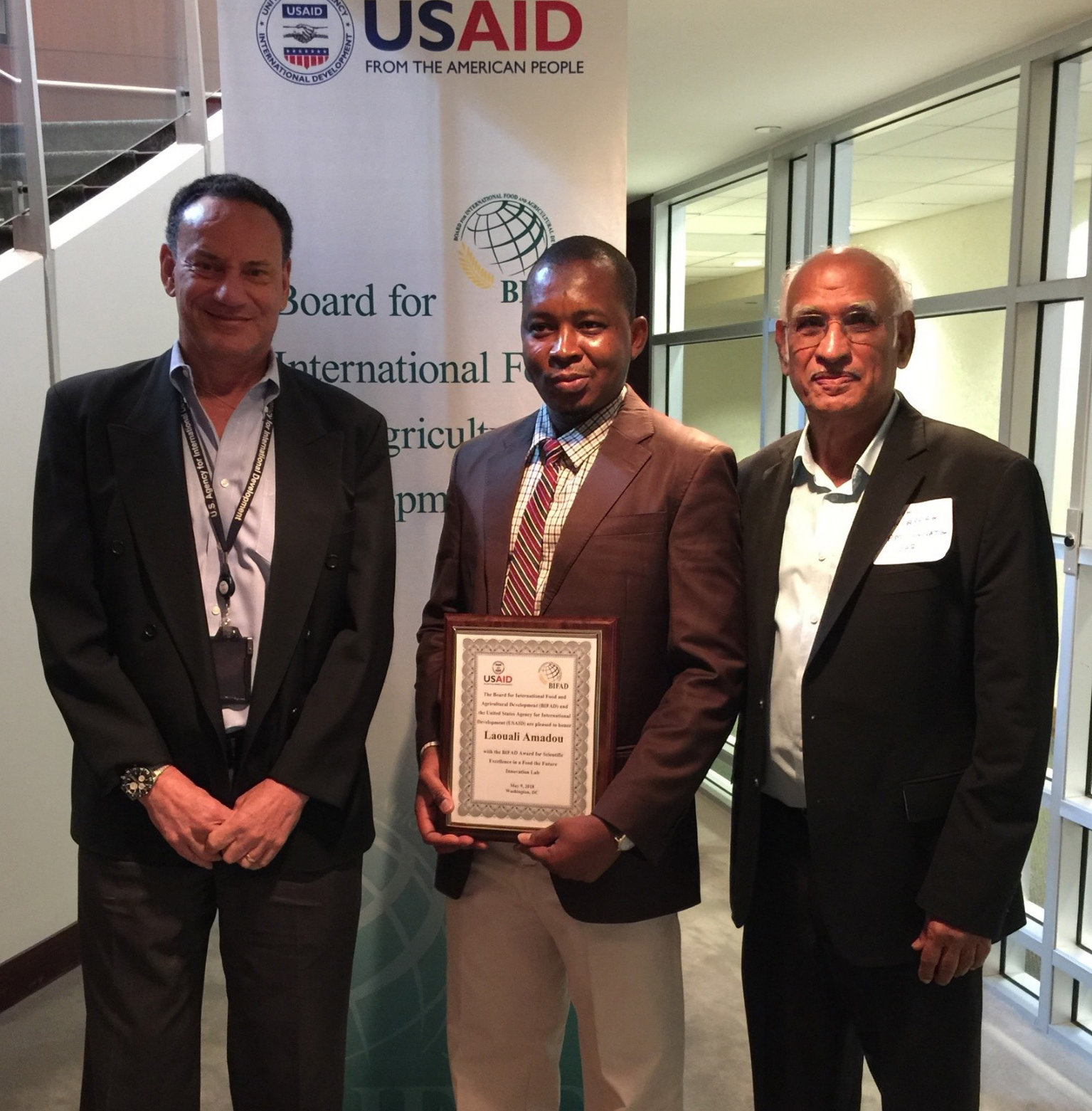Former visiting scholar earns national recognition for his research on pest management

A tiny pest called the millet head miner has been wreaking havoc on pearl millet, a staple crop in the West African nation of Niger. Yet, Laouali Amadou, a researcher from Niger who studied at Virginia Tech, has been on a mission to stop the pest in its tracks, and he has received top honors for his research.
The Board for International Food and Agricultural Development (BIFAD), a presidentially appointed federal advisory committee, awarded Amadou the BIFAD Award for Scientific Excellence in a Feed the Future Innovation Lab. Amadou was one of three recipients of the award that is designed to recognize individual student researchers and/or a team of researchers for significant achievements originating from work performed through USAID’s Feed the Future Innovation Labs.
Amadou, who is earning his doctorate in entomology at the University of Maradi in southern Niger, studied at Virginia Tech in 2015 under Muni Muniappan, director of the Integrated Pest Management Innovation Lab.
In a country that relies heavily on agricultural productivity, the millet head miner is having a big impact. Approximately 80 percent of Niger’s 20 million people are engaged in crop cultivation or animal husbandry, and the millet head miner can cause up to 85 percent crop loss.
“We have already seen an increase in the number of farmers using parasites that can attack the millet head miner,” said Amadou.
Amadou’s research, funded by the Feed the Future Innovation Lab for Collaborative Research on Sorghum and Millet, focused on rearing larval parasitoids that attack the head miner while it is still in its undeveloped feeding stage.
Scientists also tested ways to use egg parasitoids for biological control, including developing a cottage industry in Niger to grow and sell the larval parasitoids.
“I had an amazing feeling when I received the message that I won the distinguished BIFAD award,” said Amadou. “The award certainly adds value to my research. In fact, many farmers are adopting biological controls as a viable means to control the head miner population.”
Amadou noted that eight cottage industries have already begun growing and selling the parasitoids to local farmers and agricultural groups. “Parasitoid producers have already seen an increase in the demand for these biological agents that can help save much of the pearl millet crop,” said Amadou.
Muniappan continues to mentor Amadou, especially with the writing and publication of his thesis. Upon graduation, Amadou will become only the eighth entomologist in Niger.
The Board for International Food and Agricultural Development (BIFAD) was established by Title XII of the Foreign Assistance Act. The Board and Title XII recognize the critical role of U.S. land-grant institutions in agricultural development, domestically and abroad, and support their representation in USAID development programs.


